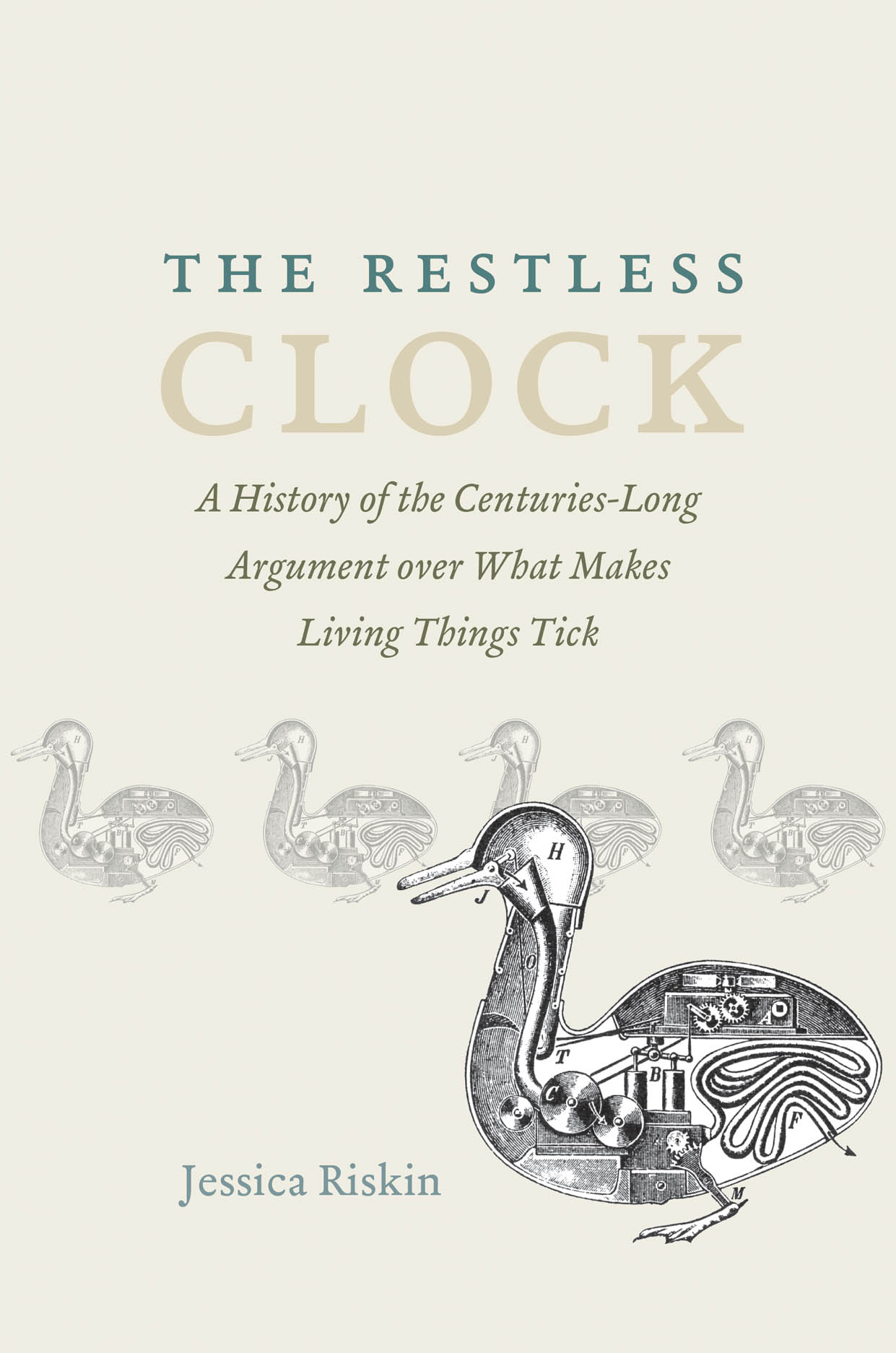 Historian of science Jessia Riskin wonders if a mechanistic view of life is due for a revival:
Historian of science Jessia Riskin wonders if a mechanistic view of life is due for a revival:
Today, the tension between active and passive mechanism is still evident, for example, in evolutionary biology. While evolutionary theorists reject creationism, of course, concepts such as adaptation and fitness are in fact grounded in a passive-mechanist view of living structures. That view has traditionally banned any talk of evolutionary agency within living organisms, and instead ascribed their forms and structures to forces acting from outside them.
At the same time, evolutionary theory retains an important inheritance from the active mechanist tradition; indeed, active mechanist ideas seem currently to be in the ascendant. Recent work on ‘niche construction’ for example attends to the ways that organisms can shape their environments, which in turn shape them through natural selection. Meanwhile, research in epigenetics examines how organisms can transform in response to their environments in heritable ways. Rather than being purely passive recipients of environmental pressures, organisms are active and self-transforming, according to current research.
According to these scientists, life is still fundamentally mechanistic – in the sense that it is made of mechanical parts and forces, with no spirits or supernatural puppeteers to make it go. But if living things are machines, they are looking more and more like responsive and disquiet ones, in a perpetual state of flux and restlessness. Jessica Riskin, “Alive and ticking” at Aeon
 It’s not clear at all how animals can be both mechanisms and “responsive and disquiet.” But then Darwinian evolutionary biology is looking rather unlikely anyway, for a number of reasons.
It’s not clear at all how animals can be both mechanisms and “responsive and disquiet.” But then Darwinian evolutionary biology is looking rather unlikely anyway, for a number of reasons.
Note: The linked essay is from Riskin’s book, The Restless Clock: a History of the Centuries-long Argument over What Makes Living Things Tick
See also: The Peppered Zombie rises at Exeter: Some curious responses from our combox. Clearly, if it were not for the hold that Darwinism has on the minds of some, the zombie moth would not now flutter through the storied groves of Exeter. Seriously, we are looking at a social phenomenon here, and the science is incidental.
Wow! The peppered myth: A Darwin zombie rises again The Exeter researchers report, “In the experiment using artificial moths, lighter models had a 21% higher chance of “surviving” (not being eaten by birds).” So their point seems to be that, if moths actually rested in open areas, they would be better off to be lighter models.